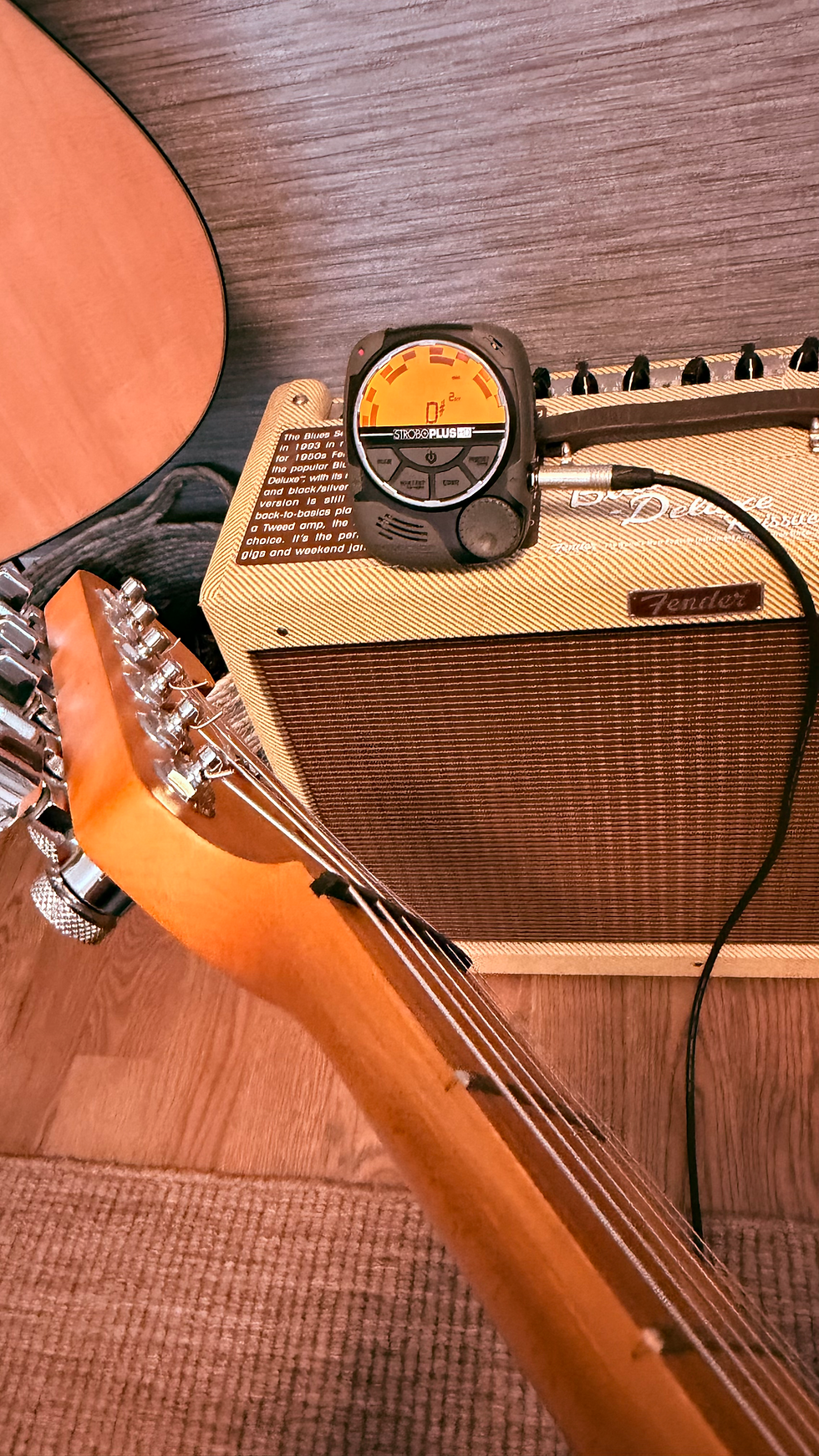Why Regular Guitar Maintenance is Essential for Musicians
- Joe Squillacioti
- Nov 4
- 3 min read
Playing the guitar is a rewarding experience that connects musicians to their creativity and emotions. But many guitarists overlook a crucial part of their craft: regular maintenance. Without proper care, even the best guitars can lose their tone, playability, and lifespan. This post explains why maintaining your guitar regularly is essential, how it benefits your playing, and practical tips to keep your instrument in top shape.

How Maintenance Affects Sound and Playability
A guitar’s tone depends on many factors, including the condition of its strings, neck, and body. Over time, dirt, sweat, and oils from your hands build up on the strings and fretboard. This buildup muffles the sound and makes playing less smooth. Old strings lose their brightness and can even break during a performance.
The neck of the guitar can warp or bend due to changes in humidity and temperature. This affects the string height and intonation, making the guitar harder to play and causing notes to sound out of tune. Regular adjustments help maintain the correct neck relief and string action, ensuring comfortable playability.
The guitar’s body also needs attention. Dust and grime can dull the finish and damage the wood if left unchecked. Keeping the body clean preserves the instrument’s appearance and protects it from long-term damage.
Preventing Costly Repairs and Extending Lifespan
Ignoring maintenance can lead to serious problems that require expensive repairs. For example, worn frets can cause buzzing and intonation issues. If not addressed, fret replacement or dressing becomes necessary, which can be costly.
Humidity is another enemy of guitars. Wood expands and contracts with moisture changes, potentially causing cracks or glue joints to fail. Using a humidifier or storing the guitar in a controlled environment prevents these issues.
Regular maintenance extends the life of your guitar. A well-cared-for instrument can last decades, even generations, retaining its value and playability. Musicians who invest time in upkeep avoid the frustration of sudden breakdowns and keep their sound consistent.
Essential Maintenance Tasks Every Guitarist Should Know
Here are some practical steps to keep your guitar in excellent condition:
Change strings regularly: Depending on how often you play, change strings every 1 to 3 months. New strings improve tone and reduce tuning problems.
Clean the fretboard and strings: Use a soft cloth to wipe down after each session. For deeper cleaning, use fretboard oil on rosewood or ebony boards to prevent drying.
Check and adjust the neck: Learn how to adjust the truss rod or have a professional do it. Proper neck relief prevents buzzing and improves comfort.
Inspect hardware: Tighten loose tuning pegs, bridge pins, and strap buttons. Lubricate moving parts if necessary.
Protect from humidity and temperature changes: Store your guitar in a case with a humidifier or in a stable environment.
Polish the body: Use guitar polish and a microfiber cloth to maintain the finish and remove fingerprints.
When to Seek Professional Help
Some maintenance tasks require specialized tools and expertise. If you notice persistent buzzing, tuning instability, or structural damage, consult a guitar technician. Professionals can perform fret leveling, electronic repairs, and setup adjustments that improve playability and sound.
Regular checkups by a technician every 6 to 12 months can catch problems early and keep your guitar performing at its best.
Benefits Beyond the Instrument
Maintaining your guitar regularly also benefits your playing experience. A well-tuned, smooth-playing guitar inspires creativity and confidence. You spend less time fixing issues and more time focusing on music.
Moreover, caring for your instrument shows respect for your craft. It builds a habit of discipline and attention to detail that translates into better musicianship.
Taking care of your guitar is not just about preserving an object. It’s about protecting your connection to music and ensuring every note sounds its best. Make regular maintenance part of your routine and enjoy the full potential of your instrument for years to come.










Comments